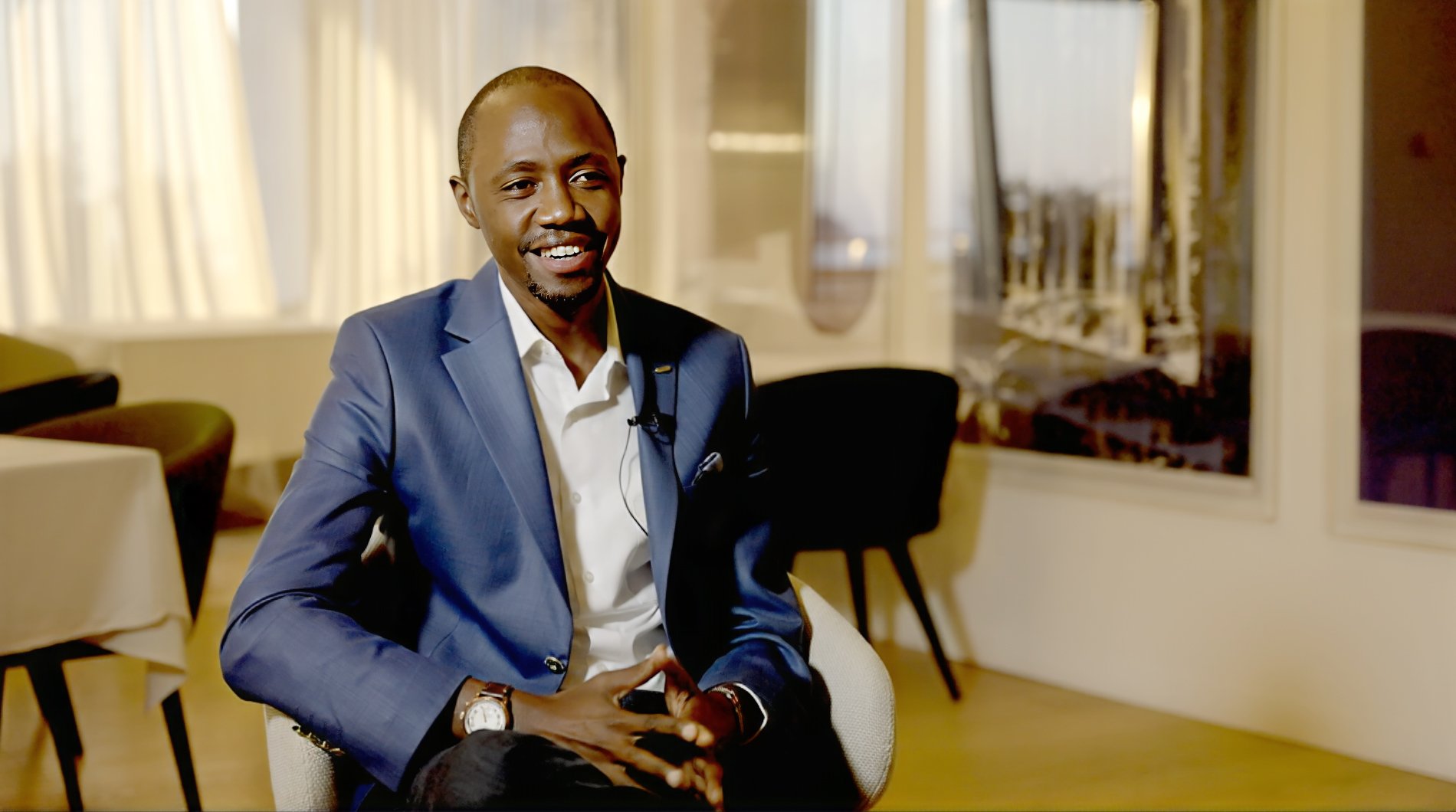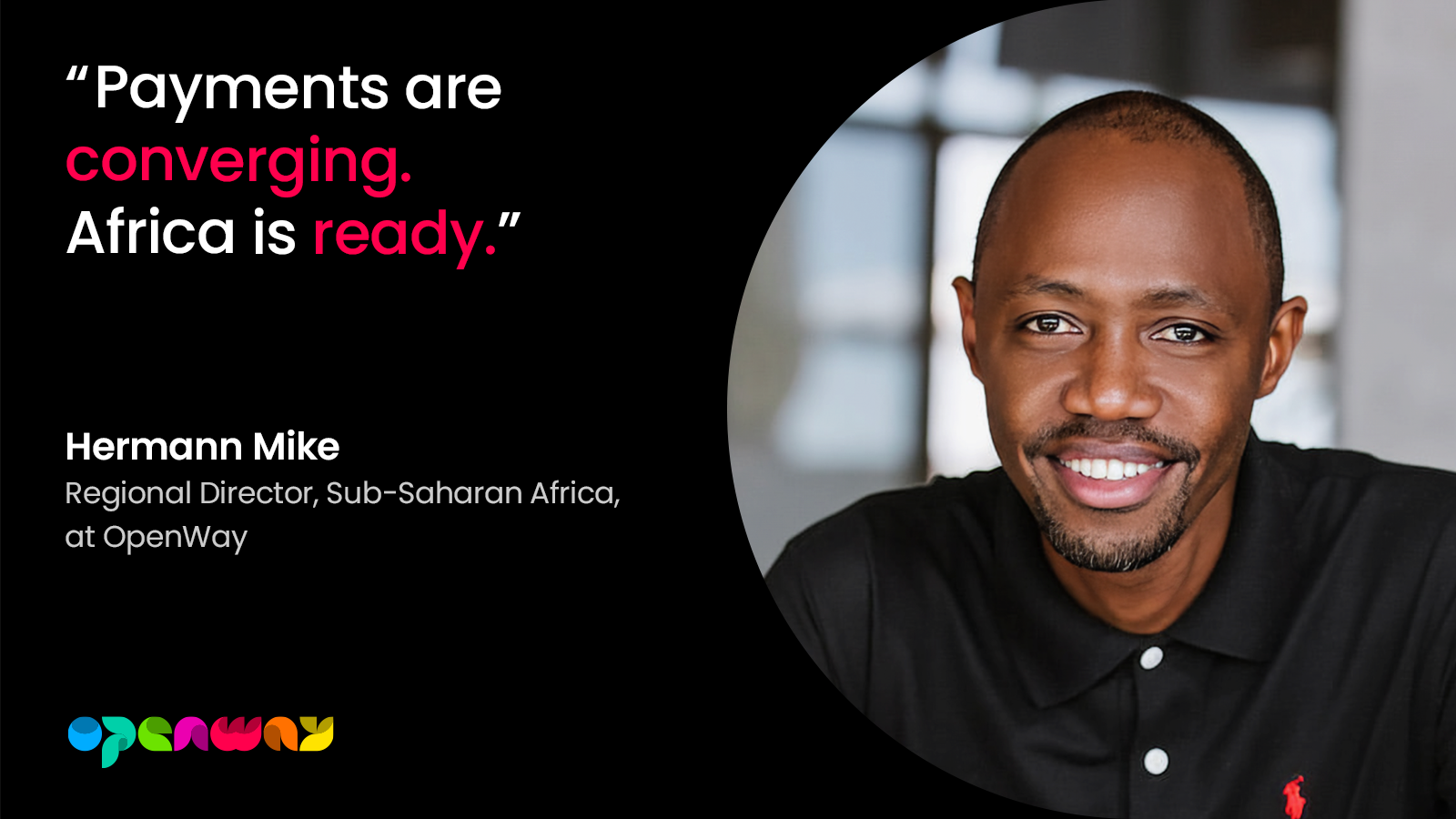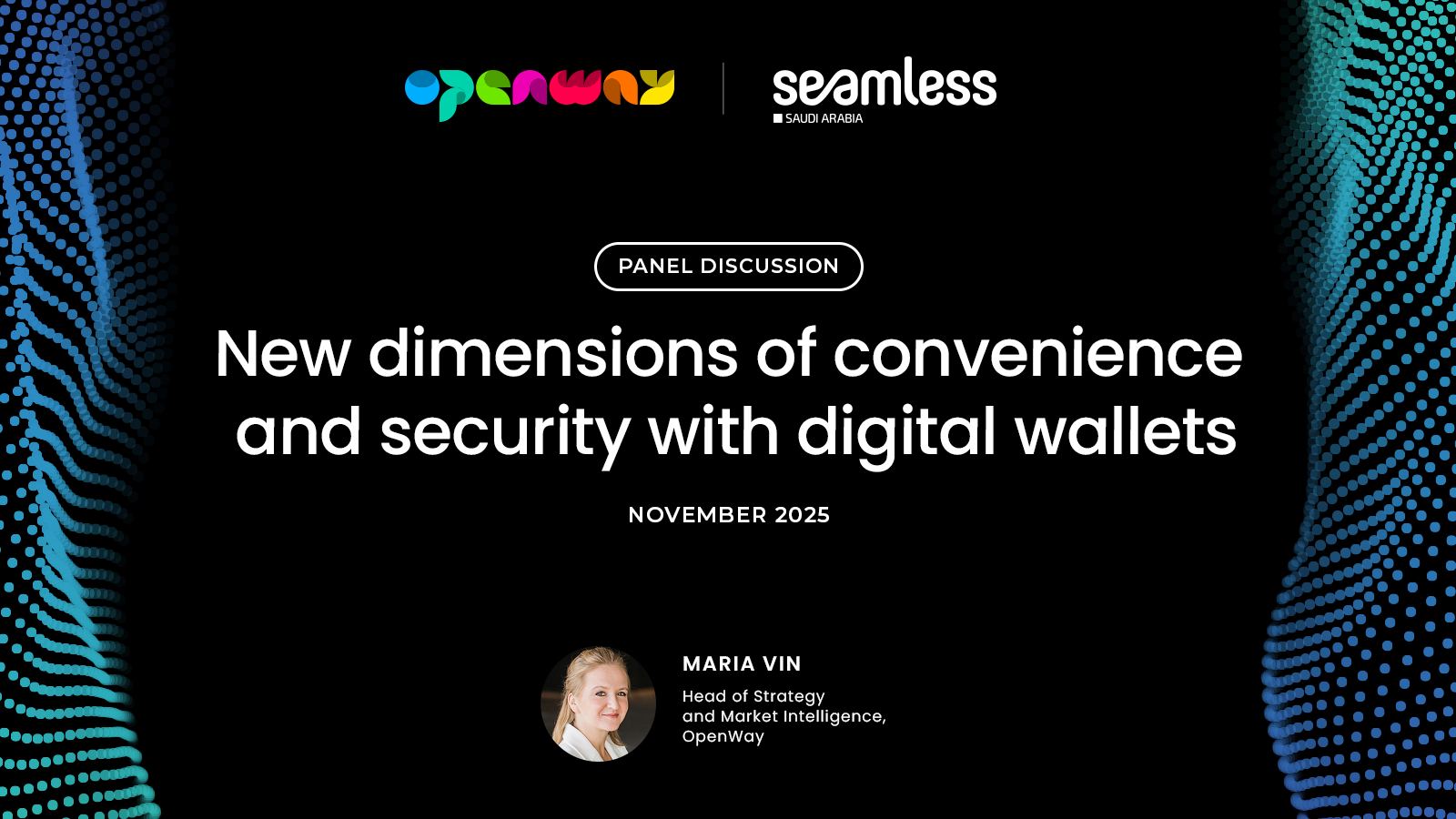Tell us a little about your background. How did you come to OpenWay? What do you enjoy most about your role?
I live in Kenya, and it’s always been home to me. While pursuing an Information Sciences degree, I developed an e-commerce platform for small traders as my final year project. Technically, it worked, but I hit a wall when it came to payments. I realized I didn’t truly understand how digital payments functioned, especially cards. That curiosity turned into a personal mission to understand the mechanics of digital money—and ultimately, to build a career in fintech.
I started out in card and mobile payments by managing systems at Senator Cards, I&M Bank, Equity Bank, and KCB Bank. I later moved to Visa as Director for Client Services, overseeing new technologies across East and Southern Africa. I’ve always been a techie, comfortable writing code and building systems. But over time, I wanted to contribute at a more strategic level—helping shape the direction of technology, not just implement it.
My first encounter with OpenWay was during my time at Equity Bank, where I led the implementation of the Way4 Switch and Card Management System. I was impressed by its flexibility and scalability. Even as I worked on other platforms, Way4 always stood out.
When OpenWay reached out with an opportunity to lead business development in Sub-Saharan Africa, it felt like the right fit. By then, I had a solid track record in payment system implementation and support across the region, including Indian Ocean markets. This role gave me the chance to help solve two key challenges I had observed across the continent: lack of robust technology and the need for trusted partnerships. At OpenWay, we’re addressing both—and I find great satisfaction in the results we’ve achieved, including a 100% project success rate in Africa.
How does your technical background complement your business development role?
It’s a huge advantage. When I speak with banks or fintechs, I’m often in the room with both technical experts and business leaders. Conversations can get very technical, and that can alienate some stakeholders. My job is to bridge that gap by translating tech into business value and helping all sides stay aligned on outcomes.
Transitioning into business development wasn’t easy. I’m naturally introverted, and sales calls can be a challenge for me. But I wanted to grow, and over the past four years, I’ve transformed. I’ve learned to lead conversations, build relationships, and bring people together. Today, what I enjoy most is the human aspect: connecting with people, understanding their needs, and helping them find the right solutions.

How would you characterize the payments landscape in your region and in Africa as a whole?
Africa is one of the fastest-growing payments markets globally. It’s a continent of over a billion people and 54 countries—each with various levels of infrastructure, regulation, and technology adoption. There are four payment regions: Francophone Africa, North Africa (as part of the MENA region), Sub-Saharan Africa, and Southern Africa.
Sub-Saharan Africa is still catching up in many areas, while countries like South Africa are more advanced. But necessity breeds innovation. MPESA is a great example—it transformed financial inclusion by giving people a secure way to transfer money, even without a bank account. That model is now studied and replicated around the world.
A fascinating fact: in Sub-Saharan Africa, there are more mobile phones than toothbrushes. Many people live on low incomes, but they diligently save, often keeping money at home. MPESA allowed them to digitize those savings and participate in the formal financial system.
Initially, digital payments in Africa focused on cards, but credit card adoption has been limited due to a general aversion to debt. Mobile payments leapfrogged ahead, and now we’re seeing a convergence of mobile and card technologies like wearables, digital wallets, tokenized cards, helping banks compete with telcos on equal ground.
What sets the Way4 platform apart in the African market?
Way4 allows banks to build open, interoperable ecosystems and launch services for underbanked communities. But what really makes it stand out is its unified, modular architecture. Most banks still use separate systems for switching, cards, wallets, tokenization, and so on. Way4 integrates all of that into a single platform.
Need a mobile wallet? Plug it in. Want tokenization or fleet management? It’s all built into the same core. That reduces complexity, speeds up delivery, and lowers costs. There’s no need for multiple vendors. It also enables instant and cross-border payments—both critical in Africa, where people and businesses regularly transact across borders and need funds to move quickly.
Another key strength is flexibility. Banks can fully customize services and wallets to fit local needs. That’s essential in Africa, where payment habits vary widely. Many banks operate in multiple countries with different behaviors and regulatory environments. Way4 gives them the agility to respond without building from scratch every time.
Equity Bank is a notable example. We’ve partnered with them since 2009, and I led the original Way4 implementation. Over 16 years, we’ve supported their expansion into seven countries. They were the first to integrate MPESA with ATMs and to enable real-time disbursements with Western Union. Way4 was also central to their biometric programs, which brought financial services to children, the elderly, and vulnerable populations through social protection initiatives.
Where do you see the future of payments in Africa heading?
Convergence is the future, bringing together cards, mobile wallets, biometrics, wearables, and more. These innovations all ride on the same rails, and that creates opportunities for banks to modernize and compete.
Push payments and mobile-first experiences are especially popular among younger generations. And with significant investments coming from China, the Far East, and the West, African markets are evolving rapidly.
One exciting trend is banks consolidating their systems onto a single core, like Way4. Equity Bank and I&M Bank are already on this path. They’re rolling out advanced products like prepaid multicurrency cards, which are in high demand across Africa.
A recent highlight for me was our work with Blusalt, a Nigerian fintech. We completed the entire Way4 implementation remotely together with an incredible team. It was a great example of how collaboration and technology can drive fast progress—even across borders.
How would you describe the business culture across your region?
Africa is diverse—in language, geography, and in how business is done. In many Western countries, procurement processes are formal and impersonal. Decisions are made on paper. Relationships come later.
In Africa, it’s the opposite. Trust comes first. Yes, RFPs are part of the process, but what truly moves things forward is your reputation, your reliability, and the relationships you've built. Clients ask: Can I count on you? Will you support me when it matters? A strong referral can carry more weight than a perfect proposal.
Of course, none of that matters without strong technology. If your solution isn’t solid and forward-looking, the conversation doesn’t start.
Each country also has its own rhythm. What works in Kenya might not in Zimbabwe or Ethiopia. In West Africa, people are direct. In East Africa, the approach is more understated. Ethiopians value patience and subtlety. You need to read the room, understand the cues, and respect local norms. One constant? Things take time. That’s not a delay—it’s how trust is built.
At OpenWay, we understand this well. Our success in Africa comes from a “glocal” approach—a blend of global expertise and strong local presence. That’s what makes us a trusted partner to both fast-growing fintechs and established banks across the continent.
Thank you, Hermann, for sharing your story!


OpenWay is the only best-in-class provider of digital payment software solutions, and the best cloud payment systems provider as rated by Aite and PayTech. OpenWay is a strategic partner of tier 1/2 banks and processors, fintech startups, and other leading payment players around the globe. Among them are Network International and Equity Bank Group in MENA, Lotte and JACCS in Asia, Nexi and Finaro in Europe, Comdata and Banesco in Americas, and Ampol in Australia.

-Mar-03-2026-03-15-57-6354-PM.jpg)
